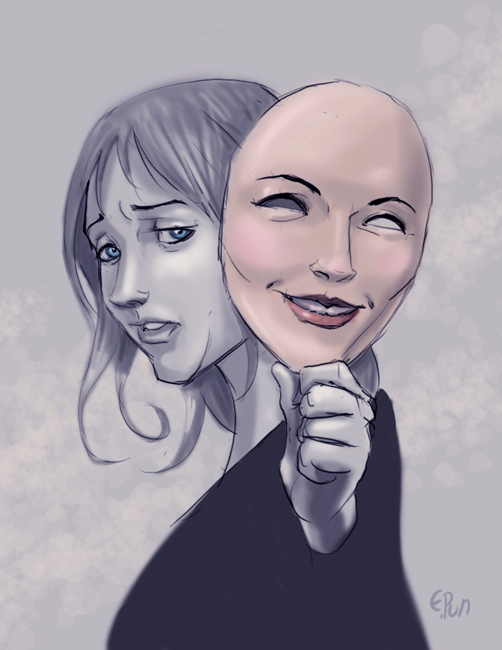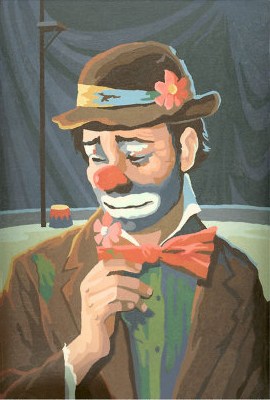The Mask of Depression
Today is a sad day, with the news of the passing of Robin Williams a much loved and admired comedian, actor and public figure.
I was just talking about Robin Williams two weeks ago, when I was discussing the mask of depression and comedy as a defence mechanism. We often hear reference to the ‘sad clown’, the person who is depressed but hides it. They paint themselves with a cheery mask and pretend everything is okay, but underneath the mask they are struggling. When in discussion we ran through comedians, my friend asked about Robin Williams, and I replied “can’t you see his sadness, hidden behind the smile”, yet my friend disagreed “he is a happy, funny man”!
What a sad way to be proven right. Yet it is so often seen in my practice, the joker, the class clown, the comedian… is all too often the one dying underneath.
The funny man at your work isn’t necessarily filled with laughter; this could very well be a way to keep you at a distance, to keep you smiling, and to stop you looking too close.
As a child I was blessed with the energy of a funny man. That man who was everyone’s favourite guest and was declared the ‘best friend’ of children and adults alike. As an adult I am blessed with the humorous energy of a women who lifts the spirits of everyone she meets; and a special man who is the ultimate class clown, an entertainer in every moment. On a daily basis I meet ‘funny people’ who present for counselling, yet even in my room struggle to drop the humourous façade. Each of these people are battling their own private demons, struggling to rise each day and using humour to keep you from seeing it.
It is not my intention to change your perception of humour, as we all love and appreciate it. However it is essential that we start to see the masks that our friends and family show us. We need to see them as masks, as camouflage, and not as reality. Humour in situations that ultimately require emotion is good indication that the humour is protective and not genuine. We need to make raw emotion safe, especially for men, who are all too often socialized into being serious or funny, with not much in between.
I recently heard it described as “a way of stopping people from getting too close” and “people don’t care enough to look deeper”. The funny man isn’t appreciated in his raw form, with the expectation from others that he is there to entertain. “What’s wrong, you’re normally the funny guy?” doesn’t open doors to honest communication, it holds fast the role that the comedian plays. It reinforces the value that is placed on the humour, and portrays annoyance at seeing a moment of what’s real.
These people are hard to crack, even for professionals. We get close, we meet resistance; and even for us it is sometimes easily to slip into audience mode, enjoying the humour. But it is worth remembering that the harder the shell, the more isolated the man.







